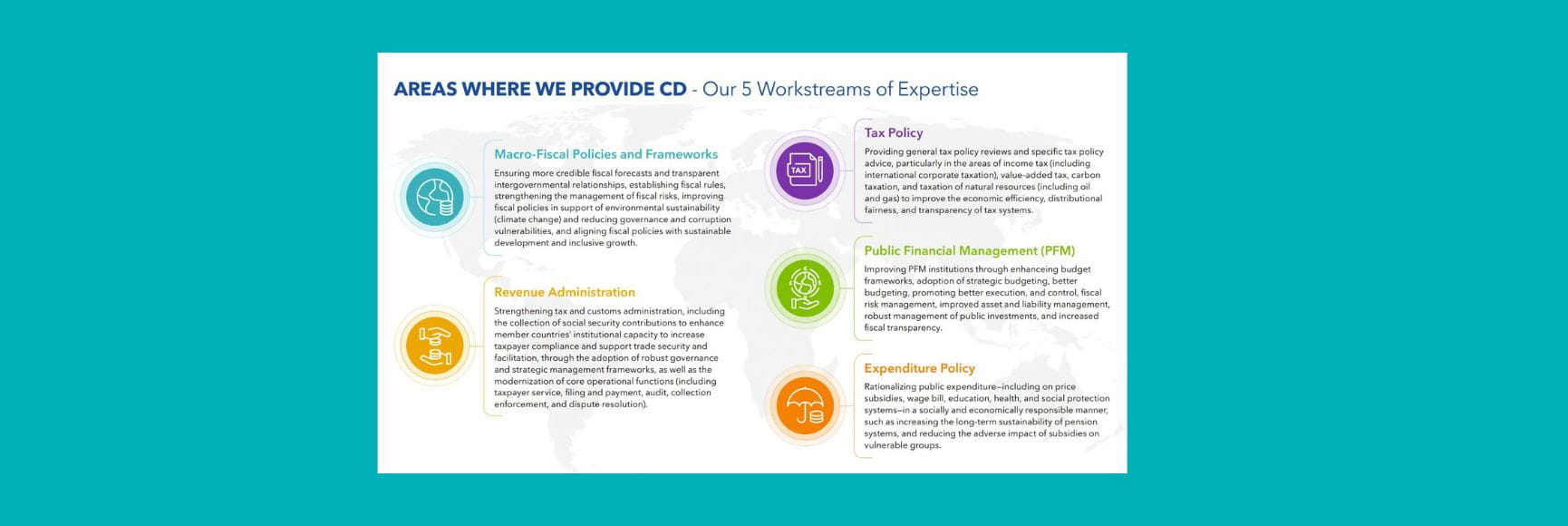Posted by Richard Allen
Richard Hemming is a co-author of the World Bank’s recently published Beyond the Annual Budget: Global Experience with Medium-Term Expenditure Frameworks. In this conversation with Richard Allen, he talks about the book, the analytical work carried out, and the policy implications.
RA: You are one of the authors of this book. What was your specific role in preparing it?
RH: The team that worked on the book was large. Jim Brumby was the team leader and I was the lead consultant. We were the only people involved in all aspects of the work for the duration of the project. My main roles were to provide guidance on the overall approaches to the book’s analysis, to contribute to some of the analysis, to coordinate the drafting of the book, and to write a significant part of it. The only two areas in which I was not extensively involved were the detailed econometric analysis, for which we put together a really accomplished team, and the assessment of Bank advice on MTEFs. Overall, the book should be viewed very much as a team effort.
RA: What's new in this book? What are its main policy conclusions? Doesn't it simply repeat themes and messages that are very familiar from past analysis?
RH: Much of what is in the book takes advantage of a database put together on countries’ MTEF status over the period 1990-2008. This was a time-consuming task. We had to identify what type of MTEF a country has, when it was introduced, if and when there were transitions between stages, whether there had been MTEF pilots, and if the MTEF was still functioning. We distinguish between three increasingly advanced MTEF stages—a medium-term fiscal framework or MTFF, a medium-term budget framework or MTBF, and a medium-term performance framework or MTPF. The database alone is a major contribution, but we were also able to put it to good use. What it revealed about the global spread of MTEFs is interesting enough. But most people will focus on its use to investigate the impact of MTEFs on fiscal performance—fiscal discipline, allocative efficiency and technical efficiency. In this connection, we find convincing evidence that MTEFs contribute to fiscal discipline, and there is enough evidence to suggest that MTEFs may be efficiency enhancing. This is a very different conclusion to that of previous reviews of MTEF experience, which focused on the initial development of a limited number of MTEFs introduced mainly in Africa in the early 1990s. We now have more MTEFs and more years of experience to work with, and the story is somewhat different.
RA: The econometric results aren't very strong. Does this mean that we are still in the dark when attempting to answer the question: "Should low-capacity countries be encouraged to establish an MTEF?"
RH: The results related to fiscal discipline are statistically powerful, and are based on some of the most sophisticated econometric techniques available to handle the methodological problems we faced. I would argue that there is stronger empirical case for advocating MTEFs, and especially MTFFs, than fiscal rules as a means of promoting fiscal discipline, although I believe that each would work better if combined with the other. Unfortunately we could not test this hypothesis econometrically given that we did not have good enough data about fiscal rules. We have to be more careful when if comes to efficiency because the data available to us on expenditure composition and outcomes is also woefully inadequate. Decent data are available for health and education spending, but we could only work with the former. While there is evidence of improvements in allocative efficiency in countries that introduced MTBFs and in technical efficiency in countries that introduced MTPFs, the focus on health spending is a limiting factor. Moreover, even in the case of fiscal discipline, the beneficial impact of an MTEF, as measured by the econometric analysis, is something that reflects the average performance across countries. There can be a lot of variation around the average, including cases where MTEFs are associated with weaker fiscal discipline and others where they seem to produce implausibly large improvements.
RA: The report underlines that the pre-conditions for introducing an MTEF are very important and too often overlooked by countries eager to show they are progressive. What are the most important of these preconditions?
RH: The general institutional requirements for effective MTEFs are indeed demanding, and the fact that these conditions are not always met explains why the early experience with MTEFs was so disappointing and why even now success cannot be guaranteed. We focus on four key needs—sustained commitment to a more strategic approach to budgeting, organizational adaptability and technical capacity, appropriate macro-fiscal policies and institutions, and sound budget systems and properly sequenced reforms. None of this will come as a surprise to readers of the PFM blog, but case studies on which the early reviews of MTEF experience were based, as well as our own case studies, and various country and regional studies of MTEFs, associate shortcomings in these areas with a failure of MTEFs to achieve meaningful improvements in the quality of budgeting.
RA: The preconditions are exacting and seem to suggest that few developing countries are ready to introduce an MTEF. What are the dangers of countries attempting to run with an MTEF before they can walk? Or is introducing an MTEF more like a process, or set of stages, that in sum can take many years to complete? What are the benefits of moving down this path, even though the journey may be long and bumpy?
RH: Because an MTEF can be implemented in stages that are increasingly demanding in terms of their specific institutional requirements, any country can consider one. It is difficult to think of any country that cannot benefit from framing the annual budget in the context of a medium-term macro-fiscal framework, or an MTFF—the IMF requires this of virtually all program countries. Yes, the priority in some post-conflict countries may be to finance core public services and achieve basic fiscal control, but this is a short-term priority in unusual circumstances. Countries that have a well-functioning MTFF, and can work within an overall resource constraint, can then start to make strategic multi-year budget plans in the context of an MTBF. But to attempt to do this before an MTFF is in place will likely be counterproductive, since the benefits from an MTBF will only emerge if resource allocation choices are resource constrained. An MTPF, where budget allocation and funding decisions are informed by program outputs and outcomes, are only for countries with more sophisticated budget systems. Ghana tried to move quickly to an MTPF and progress with budget reform was set back considerably as a result. For many developing countries, moving through the various MTEF stages could take many years even if things go well. As with all reforms, it is important to tailor MTEF implementation to country needs and capacity. As you say, the journey may also be bumpy as well as long, but a well-designed implementation strategy should reduce the number and severity of bumps, albeit maybe by making the journey longer.
RA: Should an MTEF become the main policy instrument for planning the allocation of scarce resources in developing countries? Should it effectively replace the medium-term development plan and the PIP, or must planning and budgeting - in some sub-optimal sense - continue to co-exist as separate but related processes? Again, how should such changes - which go to the heart of the decision-making process in many developing countries - be planned and sequenced?
RH: I am reluctant to claim that anything should be the main resource allocation instrument for all countries. And you ask a valid question concerning countries that have a history of development and public investment planning. I am not a big fan of formal five –year development plans, especially those that amount to little more than financially unconstrained wish-lists. However, I believe that there is a need for the government to be clear about its development priorities because this is critical to making resource allocation decisions. One of the weaknesses of many MTEFs is that spending agencies do a good job in terms of establishing priorities within sectors, but there is no basis for determining priorities across sectors, despite this being important in a resource-constrained environment. Public investment plans are different. In the best cases these are in effect public investment MTEFs, and so a full-fledged MTEF extends good capital budgeting practices to current spending, and in the process acknowledges the link between the two. In principle it is difficult to argue against doing this, but in practice problems often arise when the capital and current budgets are prepared by different agencies. These agencies could of course be combined, or the responsibilities of an investment or more general planning agency could be modified to be supportive of MTEF design and implementation, by making it responsible for describing, explaining and monitoring a country’s development priorities and achievements, and/or giving it responsibility for the appraisal, selection and management of public investment projects.
Note: The posts on the IMF PFM Blog should not be reported as representing the views of the IMF. The views expressed are those of the authors and do not necessarily represent those of the IMF or IMF policy.







